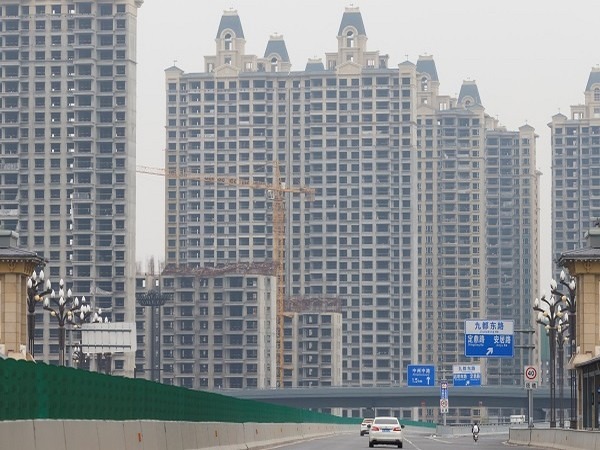Beijing [China], June 30: China’s local government inflated revenue by around USD 12 billion last year through fake land sales, the national auditor said, according to the Wall Street Journal (WSJ).
There are around 70 regions where the owners sell their lands and state-owned assets to themselves, effectively moving money around to create the appearance of more revenue.
This new revelation shows that China’s real estate slump hit municipalities even harder than initially thought. With the fake sales included, local governments saw property-linked income decline by about 23 per cent in 2022.
The country’s property sector not only accounts for a major source of Gross Domestic Products growth in China, but land sales are a key source of income for local governments.
However, heavy debt burdens and the sharp decline in demand have brought down the property market, putting pressure on regional officials, who could no longer rely on private-sector developers for land deals as they withdrew from the scene.
To prop up sales and get around limits on official borrowing, local governments set up special funding vehicles to finance projects. Many were created days before land auctions were announced to buy property, the Journal previously found, reported WSJ.
Auditors also found that local governments issued unjustified fines, misused money from Beijing, and extended guarantees to companies that boosted regional debt burdens.
Some governments have already warned about their debt risks, which were made worse by increased spending related to zero-COVID policies. Although the country lifted these measures at the end of last year, China now faces sputtering growth, while unemployment among youth rises.
Most recently, this has led S&P Global to downgrade its forecasts for China. China’s property sales plunged in 2022 by more than they did during the 2008 financial crisis, according to new estimates from S&P Global Ratings.
National property sales probably dropped by over 20 per cent in 2022. Adding to the confusion, since last June, there was a rapid increase in Chinese homebuyers refusing to pay their mortgages across a few hundred uncompleted projects, until developers finish construction on the apartments.
As per the reports, most homes in China are sold before completion, generating an important source of cash flow for developers. Businesses have struggled to obtain financing in the last two years as Beijing cracked down on its high reliance on debt for growth, as per Inside Over.









































